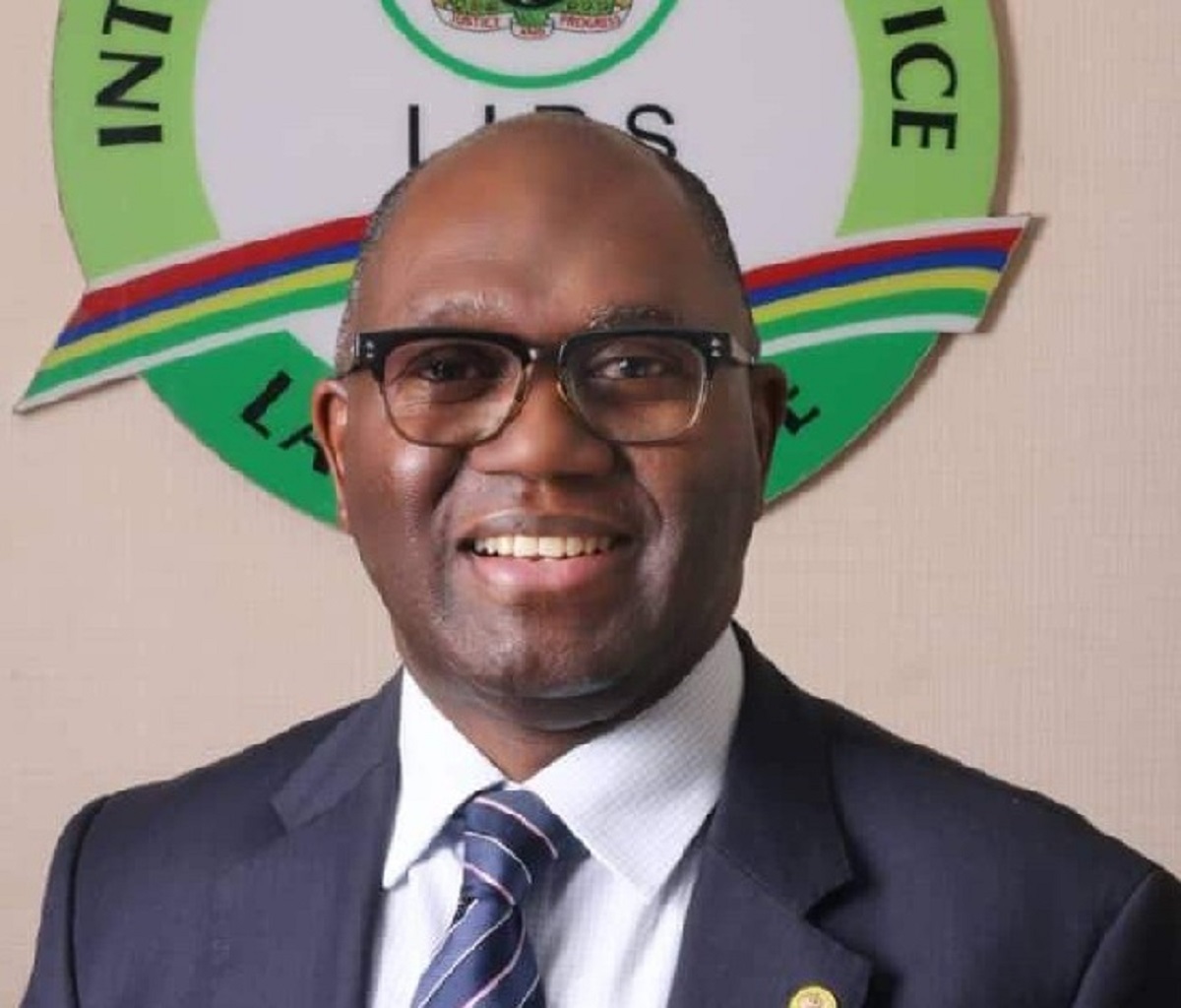General News
Losing the War on Gambling
Today, tales of how Nigerians are losing hundreds of naira through lotteries, betting and gambling schemes are common place.
Operators of these schemes are exploiting the lax regulation and the absence of strong consumer advocacy groups.
Fraudsters also use some of these schemes to wash their money and bring them back into Nigeria.
For now the country’s ill-equipped security agencies have no ways to shut them down because the schemes are increasingly flexible and confusing.
Gambling in Nigeria is legal, but only for casinos and the country’s online lottery. Any other form of gambling or betting is forbidden.
Despite the prohibition, betting exchanges have continued to thrive ranging from slot machines to underground casinos, football betting and illegal lotteries.
The exchanges have ready patrons from millions of Nigerians who are lured by prospects of winnings that can change their lives in the face of acute shortages of jobs and all amenities in the country.
Most Nigerians who wager (bet) on the exchanges are not protected and cannot lay any claims in case of default in payment.
The federal government is also losing revenue due it because of the unregulated nature of the business.
As it stands, Lottery Regulatory Commission is only concerned with the regulation of the operation and business of the national lottery of Nigeria.
The power to regulate the trade is also neither with the Economic and Financial Crime Commission (EFCC) nor the Nigeria Communications Commission (NCC).
Because nobody is in charge, there are nearly 2,100 retail lottery terminals currently available in Lagos, Abuja, Port Harcourt, Aba, Benin City, Enugu, Ibadan and Onitsha and other major cities.
They come in different names but with drawings every week.
Criminal gangs under the guise of online betting, a wager would purposely lose to the other party in a bid to pay out money that is then cleaned through this process especially in person-to-person wagering.
Online betting and gambling are open to abuse but operators can only be charged for economic crimes if they are suspected to be a conduit for money laundering.
But being able to trace money laundered through online gambling is an uphill task for the ill-equipped financial crime law enforcement agencies.
And if this not checked, grave dangers’ awaits Nigerians and indeed the country.
The only way forward is make all kind of betting or gambling to fall under the ambit of the National Lottery Regulatory Commission.
It requires the simple amendment of the laws setting up the Lottery Regulatory Commission.
Experienced management who can keep pace with development in the information technology space should be hired for the Lottery Regulatory Commission given the growing sophistication of the trade.
General News
Holiday shoppers spend a record $1.2T online, Salesforce data shows

Salesforce, the world’s #1 AI CRM, today revealed new data showing holiday retail sales surged to a record $1.2 trillion globally and $282 billion in the United States, but high returns could dampen overall profit margins.

The report indicates that the better-than-expected holiday shopping season was powered by surges in mobile and social commerce alongside increased consumer spending after months of saving in the first half of 2024.
However, shoppers have already sent back $122 billion in merchandise. Both consumers and retailers leaned into the use of AI and agents to enhance holiday shopping experiences through product recommendations and personalised order support, influencing $229 billion – or 19% – of all online orders.
“Retailers had a robust holiday season, but a 28% rise in the rate of returns compared to last year is a cause for some concern,” said Caila Schwartz, Director of Consumer Insights at Salesforce. “Retailers who have embraced AI and agents are already seeing the benefits, but these tools will be even more critical in the new year as retailers aim to minimise revenue losses on returns and reengage with shoppers.”
Salesforce data, based on an analysis of 1.5 billion shoppers and 1.6 trillion page views across the Salesforce Platform, highlights trends that shaped the holiday season, including:
Online sales and order growth reached new peaks:
Online sales reached $1.2 trillion globally and $282 billion in the U.S. This represents a 3% global year-over-year (YoY) increase and a 4% YoY increase in the U.S. Online sales also grew 1% YoY in the European Union (EU).
Retailers harnessed the value of AI and agents:
$229 billion of global online sales were influenced by AI and agents in the form of product recommendations, targeted offers, and conversational customer service support.
19% of holiday purchases were influenced by consumers engaging with AI and agents, a 6% increase from 2023.
Retail use of generative AI features like agents increased 25% during the holiday season compared to September and October in 2024.
Shoppers used AI- and agent-powered chat for customer service 42% more than they did during the 2023 holiday season.
The rate of returns rapidly increased:
More than $122 billion of global purchases have already been returned, up 28% from last year.
This increase is partially due to trending consumer behaviors like “try-on hauls” and bracketing (buying an extra size above and below your standard size).
Salesforce projects that retailers will likely see this number grow to $133 billion – presenting an important opportunity for brands to use agents to make the returns process easier and more tailored to specific customer needs.
Social commerce grew its influence on shoppers:
Retailers using social commerce strategies saw 20% of global holiday sales generated through platforms like TikTok Shop and Instagram.
Social media as a traffic-referring channel also grew 8% YoY, driving 14% of all traffic to ecommerce sites during the season.
General News
Lagos State Sets Strict Deadline for 2024 Tax Returns Filing

Lagos State Internal Revenue Service (LIRS) has issued a reminder to all employers in Lagos State to fulfill their statutory obligation to file annual tax returns for the 2024 financial year on or before January 31, 2025.

This requirement is in line with the Personal Income Tax Act (PITA) Cap P8 LFN 2004 (as amended).
In an official statement, Dr. Ayodele Subair, the executive chairman of LIRS, emphasized that meeting this deadline is a legal obligation.
He warned that failure to comply will result in statutory sanctions, including penalties, as prescribed by law.
Section 81 of PITA mandates employers to submit comprehensive annual returns detailing all emoluments paid to employees, including taxes deducted and remitted to relevant tax authorities.
These returns must be filed no later than January 31 each year and cover the income and taxes paid during the preceding year (2024).
Dr. Subair stressed, “Employers must prioritize the timely filing of their annual income tax returns to avoid penalties. Submitting returns on or before the deadline ensures compliance with the law and supports accurate revenue tracking, which is essential for Lagos State’s fiscal planning and sustainability.”
To simplify the process, LIRS has transitioned to a fully digital filing system. Employers must file their annual tax returns exclusively through the LIRS e-Tax portal.
Manual submissions are no longer accepted. Mr. Subair described the e-Tax platform as secure, user-friendly, and designed to provide employers with a convenient way to manage their tax obligations.
Employers are reminded to include the Payer ID of all employees in their returns. Employees without a Taxpayer ID are advised to generate one immediately on the e-Tax platform to prevent disruptions during the filing process.
To assist employers, LIRS has deployed staff across its offices to provide guidance on using the e-Tax portal and addressing related concerns.
Employers are encouraged to act promptly to meet the deadline and ensure compliance with tax laws.
General News
Nigeria Recovers $52.88m in Assets Linked to Former Petroleum Minister Diezani Alison-Madueke

Federal government has received $52.88m recovered Galactica assets linked to a former Minister of Petroleum Diezani Alison-Madueke from the USA.

The Attorney-General of the Federation and Minister of Justice Lateef Fagbemi disclosed this at the formal signing ceremony of the asset agreement between Nigeria and the United States of America in Abuja on Friday, January 10.
While speaking at the ceremony, Fagbemi explained that $50m of the recovered assets will be deployed through the World Bank to the development of the rural electrification project and the remaining $2m will be deployed to the International Institute of Justice to expand the Justice system and also counter corruption.
Speaking further, Fagbemi noted that the asset return marks a milestone in the ongoing collaboration between Nigeria and the United States in combating corruption and upholding the rule of law
He said the event is also a significant effort by President Bola Tinubu to address the issue of corruption.
Meanwhile, in his remarks, the United States Ambassador to Nigeria Richard Mills called for the monitoring and effectively utilizing the recovered assets by the Ministry of Justice to benefit Nigerians.
Diezani served as Minister under the Goodluck Jonathan administration.

 General News3 days ago
General News3 days agoNigeria Recovers $52.88m in Assets Linked to Former Petroleum Minister Diezani Alison-Madueke

 E-Business3 days ago
E-Business3 days agoCybersecurity Firm Warns of Phishing Threats Targeting Telegram Premium

 General News3 days ago
General News3 days agoTransform Your Health with QNET’s BELITE 123: The Ultimate Weight Management Solution

 General News3 days ago
General News3 days agoTikTok Announces Plans to Cease Operations in the U.S. by January 19, 2025

 E-Financial20 hours ago
E-Financial20 hours agoBudgIT Queries Irregularities in FG’s Proposed 2025 Budget

 General News20 hours ago
General News20 hours agoLagos State Sets Strict Deadline for 2024 Tax Returns Filing

 E-Financial20 hours ago
E-Financial20 hours agoNAICOM Seeks Police’s Support to Enforce Third-party Motor Insurance

 Telecom20 hours ago
Telecom20 hours agoSuspected Lakurawa Terrorists Kill 3 Telcoms Workers in Kebbi



















